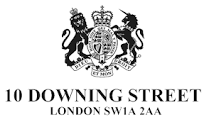PRESS RELEASE : Prime Minister accelerates military support to Northern Europe following visit to Sweden [October 2023]
The press release issued by 10 Downing Street on 13 October 2023.
The Prime Minister has vowed to step up the UK’s presence in Northern Europe, deepen cooperation on tackling hybrid threats and protect Critical National Infrastructure with Joint Expeditionary Force (JEF) partners as he met fellow leaders today.
- More than 20,000 British troops to be deployed across Northern Europe next year
- Comes as the Prime Minister warns we must not be complacent after Putin’s embarrassing failures in Ukraine embolden his disruptive behaviour elsewhere
- Prime Minister meets Joint Expeditionary Force leaders in Gotland after staying on board Royal Navy warship – the first Prime Minister to do so in more than 50 years
The Prime Minister has vowed to step up the UK’s presence in northern Europe, deepen cooperation on tackling hybrid threats and protect Critical National Infrastructure with Joint Expeditionary Force (JEF) partners as he met fellow leaders today.
More than 20,000 British troops will be deployed to the region next year, which is vital for the protection of Critical National Infrastructure, as the exploitation of hybrid activities and strategic competition in the area accelerates.
Meeting northern European leaders today on the strategically important island of Gotland to discuss the challenges facing the region, as well as the situation in Israel, the Prime Minister warned that Putin’s failures in Ukraine were emboldening Russia’s irresponsible behaviour in other parts of Europe.
He told leaders that while Putin had lost significant ground in Ukraine since he launched his barbaric invasion, allies and partners should not be lulled into a false sense of security. The Kremlin was reinvesting in military capability and turning to a diminishing number of malevolent and marginalised partners to try and rebuild its strength and undermine global stability.
His warning came after damage was detected earlier this week to two pipelines between Estonia and Finland, and HMS Queen Elizabeth was forced to launch fast jets from her deck in the Arctic last week to escort Russian Maritime Patrol Aircraft that flew close to the Carrier Strike Group operating in the region.
JEF leaders discussed today how they can address Russia’s sabotaging behaviour in the region, both through stronger defence collaboration and increasing industrial cooperation.
The Prime Minister outlined how accelerating defence industrial cooperation within Europe and across the Atlantic was vital to ensuring nations maintain a technological advantage over Russia and protect partners from Russian attacks for generations to come.
As part of that ambition, the Prime Minister also set out how the UK will accelerate its military cooperation in the region to help detect, deter and defuse traditional and hybrid threats.
That acceleration will include sending more than 20,000 soldiers, sailors, marines and air men and women to the region next year, alongside 8 Royal Navy ships, 25 fast jets and an aviation task force of Apache, Chinook and Wildcat helicopters. They will take part in large-scale, multi-country exercises, as well as carrying out air policing and cold weather training.
Prime Minister Rishi Sunak said:
This week, we have seen yet again that our security cannot be taken for granted. It is vital that we stand united against those with malign intent.
As the international order continues to be challenged by desperate dictators, rogue states, and terrorist organisations – like Hamas – we must stand shoulder-to-shoulder with our international friends and partners to defend our values, security and prosperity.
Northern Europe is vital to our national security, which is why it’s more important than ever that we work with our Joint Expeditionary Force neighbours to protect our backyard and deter damaging hybrid threats.
The UK’s Carrier Strike Group is already in the region for its autumn deployment, underlining the UK’s commitment to the area. The group is led by flagship HMS Queen Elizabeth and accompanied by five British ships, F35 Lightning II stealth fighter jets and Wildcat helicopters.
The Prime Minister stayed on destroyer HMS Diamond, which is docked in Visby, last night, before having breakfast with British sailors this morning. According to Royal Navy archives, he is the first Prime Minister to overnight on a Royal Navy warship since the late Prime Minister Harold Wilson in 1968.
The ship is a vital component of the strike group, providing state-of-the-art air and missile defence capabilities. It is docked in Visby as part of the group’s work with Sweden during their autumn deployment.
The carrier group, including HMS Queen Elizabeth, will return early next year to lead the UK’s contribution to the first phase of NATO’s most ambitious military drill since the Cold War, Exercise Steadfast Defender.
The operation will span almost six months and see 16,000 UK soldiers deploy to Estonia and Norway.
The deployments come as the Prime Minister deepened the UK’s relationship with Sweden today, signing a strategic partnership with the Swedish Prime Minister Ulf Kristersson.
The partnership will expand cooperation on security and defence, innovation, science, energy, trade and investment. It builds on the UK’s security assurances to Sweden, which were signed last year ahead of the country’s accession to NATO.
The Prime Minister also agreed a new ambitious Green Industrial Partnership with Norway, which will seek to drive both countries’ transition to more clean and secure energy by enabling deeper cooperation on areas like offshore wind, low emission transport and critical minerals.
The agreement will benefit supply chains and support skills in low carbon sectors, as well as improving the security and resilience of critical infrastructure.


